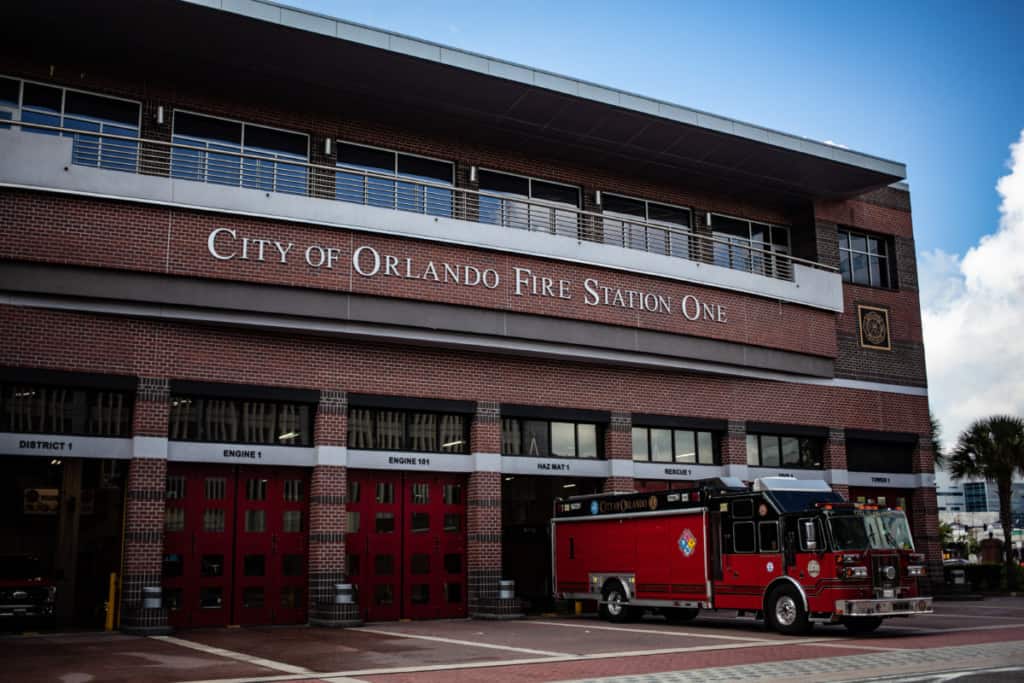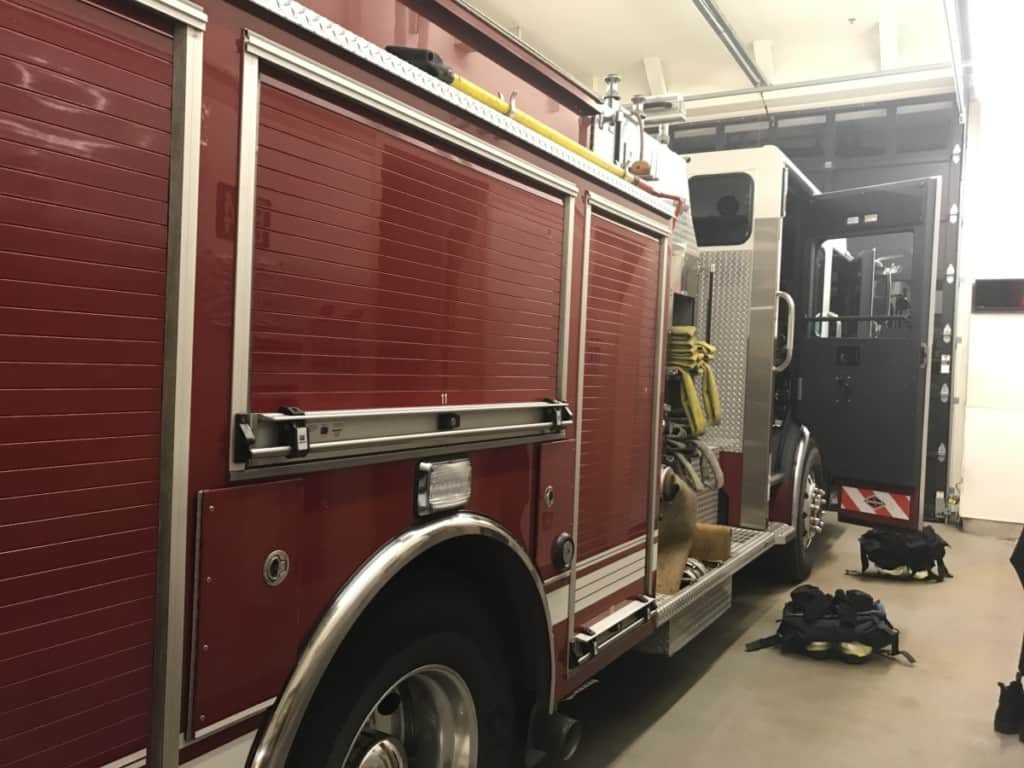There are risks to being a firefighter. Firefighters have to work in dynamic, stressful environments that pose a threat to their safety. Even though the modern fire service does all it can to protect it’s firefighters, there will always be some level of risks. People even say that firefighters have a shorter life expectancy than the rest of the population, is this true?
There have been many studies done on firefighters and their life expectancy/mortality. Although firefighters seem to be at a greater risk for certain types of cancer, firefighters do not appear to have a shorter life expectancy or increased rate of mortality compared to the general public.
There are a lot of factors that can effect life expectancy and firefighters have some unique ones when compared to everyone else. We will take a look at some of the risks of being a firefighter, what the average life expectancy is, and causes of firefighter deaths.
Your # 1 priority is keeping your family safe. As a firefighter, I recommend everyone has updated smoke detectors that don’t require battery changes, like these ones from Kidde, a fire extinguisher, like this one from Amerex, and a fire escape ladder if you have bedrooms above the first floor, I recommend this one from Hausse.
Also read: 35 Things All Firefighters Should Know
Firefighter Risks
Being a firefighter means putting your own safety on the line to help those in need. Now, this doesn’t happen every day, but firefighters are expected to put themselves in situations that risk their own safety when they have a chance at saving a life.
While firefighters do get hit by cars, crushed by buildings collapsing on top of them in a fire, and other traumatic accidents, some of the biggest threats to firefighters are the less obvious ones. Some of these threats include:
- Stress/exertion
- Smoke Inhalation
- Exposure to toxic chemicals
- Wear and tear of physical job
The fire service has greatly improved over the last 50 or so years when it comes to firefighter safety. While firefighters need to take certain risks, no one wants a firefighter to get hurt, sick or killed when it could have been prevented.
Another factor is change. While the safety equipment and procedures have dramtically improved, with the use of SCBAs (self contained breathing apparatus) and much better and more efficient decontamination of equipment from the toxins found in a fire, the fires have changed as well.
Fires these days burn hotter and faster, thanks to everything being made of plastics and synthetic materials instead of the old wood and natural fabrics. These materials also produce smoke that is filled with a lot more dangerous chemicals and other nasty stuff.
Take a look at this video comparing how older style homes and newer ones will burn during a house fire:
So, firefighters need to continue to adapt and improve, as the world and its risks change. How do all these risks affect the life expectancy of a firefighter?
What is the Average Life Expectancy of a Firefighter?
On average, studies show that firefighters have about the same life expectancy as the general public. However, firefighters are more likely to get cancer in their lifetime.
It would seem that such a risky job as fighting fire would mean you are more likely to die young, and in years past that may have been the case, but most studies over the last 100 years show that firefighters have a similar life expectancy to everyone else.
For example, a study from 1950-2000 in Hamburg, Germany, that included 4640 firefighters found that firefighters actually had a lower risk of mortality.
“In summary, we could confirm in our German study the results of previous studies of a lower-than-normal mortality of firefighters.”
Mortality and life expectancy of professional fire fighters in Hamburg, Germany: a cohort study 1950 – 2000
Another study in Philadelphia from 1926-1986, included 7789 firefighters. They found no increased mortality, but there was an increased risk of certain cancers.
“Our study found no significant increase in overall mortality among Philadelphia firefighters. However, we observed increased mortality for cancers of the colon and kidney, non-Hodgkin’s lymphoma, and multiple myeloma.”
Cohort Mortality Study of Philadelphia Firefighters 1926-1986
While life expectancy may not be any less, the risk of cancer for firefighters seems to be significant. According to the Firefighter Cancer Support Network, firefighters have a 9% greater chance of being diagnosed with cancer and a 14% greater chance of dying from cancer.
Here is a list of studies showing the increased risks of cancer for firefighters:
- https://www.cdc.gov/niosh/updates/upd-10-17-13.html
- https://www.ncbi.nlm.nih.gov/pmc/articles/PMC7063017/
- https://www.ncbi.nlm.nih.gov/books/NBK326822/
- https://pubmed.ncbi.nlm.nih.gov/16966954/
- https://pubmed.ncbi.nlm.nih.gov/15898094/
How Often Do Firemen Die?
In the United States, approximately 90 firefighters die in the line of duty each year. This number includes all volunteer and career firefighters over the past 10+ years.
These numbers are referring to how many firefighters die in the line of duty, rather than life expectancy, which includes firefighter deaths after they have retired.
The number of line of duty firefighter deaths per year seems to be trending down over the last 50 years (besides 2001 where 343 firefighters died during the events on 9/11). Hopefully, these numbers will continue trending downward as safety procedures continue to improve.
What Do Most Firefighters Die From?
Though heart attacks were the number one cause of firefighter death for a while, that has changed. These days, the most common reason for firefighter death is cancer.
Cancer is the number one cause of death in firefighters, though it depends on what statistics you look at. Some still show overexertion/stress and cardiac disease like heart attacks as the number one killer, but that depends on line of duty death vs. deaths overall.
Firefighters are exposed to more than the average person. Everything from diesel exhaust, hazardous materials, and all the nasty chemicals found in the smoke from today’s fires. Though it is hard to prove that being exposed to these things causes cancer, because it may not occur for many years after the exposure, the link between firefighter job exposure and cancer is pretty clear.
Here is a video talking about cancer risks for today’s firefighters:
Many types of cancer are considered a presumptive illness for firefighters because the studies show the job increases firefighter cancer risks. This basically means that medical costs, lost wages, and such will be covered for a firefighter that gets cancer while working, even if there is no way to actually prove it was from working as a firefighter. These laws can vary by state, so the details may not apply the same to all firefighters.
We hope that the cancer risks will improve as time goes on. Some of the data around firefighters and cancer come from the days before SCBAs were used to protect the air that is breathed and when most firefighters frequently smoked cigarettes. These days, firefighters do everything possible to avoid breathing toxic smoke, including:
- Wearing SCBAs for all fires, even during the overhaul/mop-up phases
- Not bringing contaminated gear into living quarters of fire stations
- Better decontamination procedures after fires or other exposures
- Diesel exhaust collection/cleaning systems on engines and trucks
These efforts to protect firefighters will hopefully show that firefighters are less at risk for cancer than these recent studies show. However, firefighters will have certain risks that the general public do not, it is part of the job.
Conclusion
The research shows that while firefighting is a more dangerous job than many, the life expectancy for firefighters is actually no different than anyone else. However, the risk of cancer is significantly higher as a firefighter, but we hope this will improve over time.
Related Articles
What Is It Like to Date a Firefighter? What You Should Know
Can Firefighters Smoke? (Cigarettes, Cigars, Vape, Weed, CBD)

